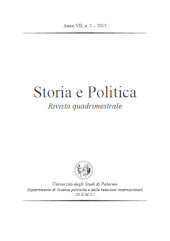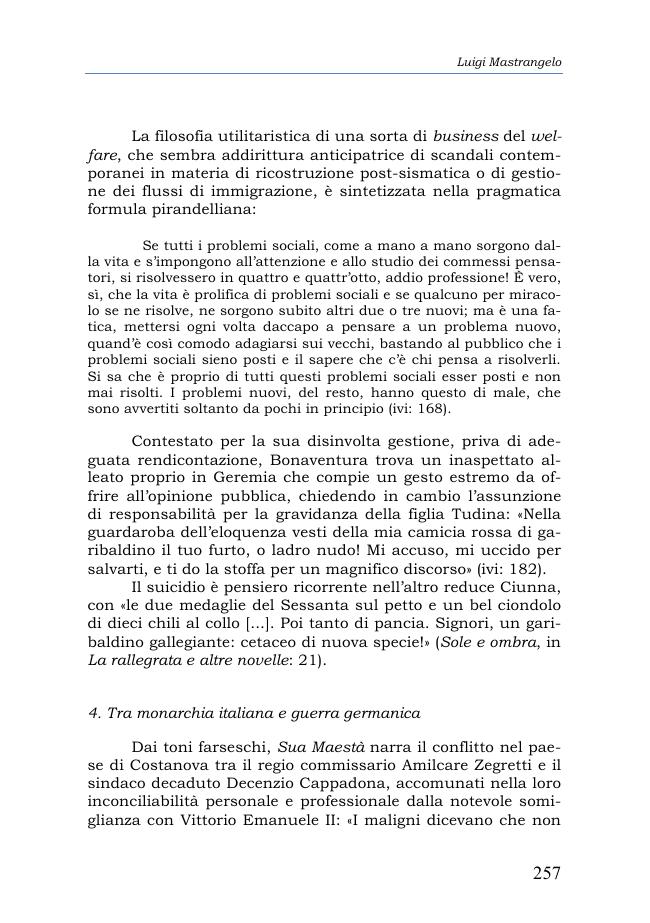Non poteva l'Italia farsi in altro modo? Luigi Pirandello e la transizione politica italiana Otto-Novecentesca
245-268 p.
The House Study of Luigi Pirandello has promoted a series of cultural events to celebrate the eighty years since the awarding of the Nobel Prize for literature to the Sicilian writer. I vecchi e i giovani, that Cesare Pavese called a wrong novel because stuffed with backgrounds and social political explanations is the most significant political work of Pirandello, but not the only relevant one from this interpretative point of view. The disillusioned veteran of Garibaldi, who sees his ideals progressively and inevitably exploding, is a highly significant character in Pirandello occurring in various stories. Pirandello's membership to fascism finds its deepest foundations in the evolution of a Southern intellectual who understood how his Risorgimento was "betrayed" and granted to Rome and its myth, through the regime, the possibility of redemption. But Pirandello is a man who does not abjure his intelligence and his vision of reality in the name of a preconception. [Publisher's text].
Fait partie de
Storia e politica : rivista quadrimestrale : VII, 2, 2015-
Articles du même numéro (disponibles individuellement)
-
Informations
ISSN: 2037-0520
KEYWORDS
- Literature, Politics, Fascism, War, Unification of Italy



